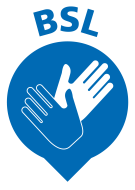As the annual surge of festivities approach, North East Ambulance Service is urging the public to celebrate responsibly and use NHS resources wisely in the run up to one of the busiest weeks of the year.
North East Ambulance Service is urging the public to celebrate responsibly and use NHS resources wisely in the run up to one of the busiest weeks of the year.
As the annual surge of festivities approach, with celebrations including Black Eye Friday, Christmas Eve and New Year’s Eve, emergency services are gearing up for potential incidents across the region.
Black Eye Friday is traditionally known for increased emergency service calls for alcohol-related incidents and accidents. Therefore, we are urging the public to celebrate responsibly and look after each other and only use emergency services for life-threatening calls.
Deputy Chief Operating Officer, Victoria Court said: “We want everyone to enjoy their festivities this Christmas and New Year but please be responsible and look after each other when you’re out celebrating. We want everyone to have a good time, but don’t ruin your fun by ending up in the back of an ambulance.
“Each year we see an increase in alcohol-related calls. Please think before you pick up the phone, do you really need an ambulance or is there another way of you getting help?”
If it isn’t life-threatening, please consider using 111 online first.”
Susan Taylor, Head of Alcohol Policy for Balance, said: “Paramedics, police, A&E doctor and nurses are already working flat out with winter pressures and have to deal with the inevitable impact of higher levels of consumption when people might be drinking up to a couple of weeks’ worth of alcohol in one night, often pre-loading with cheap, shop-bought alcohol.”
The Safe Haven van in partnership with Northumbria Police will be in operation in Newcastle City Centre during these busy periods as well as Medicar in Cleveland which is supported by Cleveland Police.
Victoria Court continued: “These services are available to protect vulnerable members of the public by providing them a place of safety, whilst reducing the impact on front-line policing and ambulances. This also helps relieve pressures on local hospitals and provide a secure environment to pass on safety information and give medical assistance to anyone might need it.”

